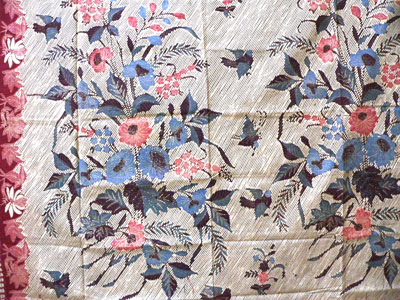
June 11, 2009
Anita Rachman
Indonesian batik is one step closer to being recognized as one of the world’s intangible cultural treasures.
The traditional art form passed another hurdle in becoming registered with the United Nations Educational, Scientific and Cultural Organization, meeting the requirements of a document assessment session with one of the organization’s subsidiary bodies.
Indonesian deputy ambassador to the Paris-based Unesco, Dindin Wahyudin, said the government was confident about the process.
“Personally, I would say 99 percent optimistic, if we should leave the one percent to God,” he said.
Dindin said that while Unesco was happy with all the supplied documentation, Indonesian diplomats would continue to introduce batik to their foreign colleagues as part of the lobbying activities.
Culture and Tourism Minister Jero Wacik said on Thursday that the government would maintain its efforts to lobby the organization before it faces the final assessment at a Unesco plenary session of 24 countries in Abu Dhabi from Sept. 28 to Oct. 2.
“We went to France many times and have worked hard to put on the international record that batik is originally from Indonesia,” Jero said.
Gaura Mancacaritadipura, a cultural expert who was also a member of the team that researched and drafted the nomination to Unesco, said that 19 of the country’s 33 provinces produced their own distinct batik motifs, which had been grouped under the general term: “Indonesian batik.”
He said his team had worked on the proposal since November 2007, presenting the finished document in September 2008.
“I went to places and talked to people directly to get the information,” Gaura said.
Indonesian batik is unique and different from other traditional art forms in its use of negative printing techniques, in which wax is applied to the parts of the fabric not meant to be colored. Indonesia also has a rich array of distinct motifs, each with their own local background.
“A person could spend a year, just to work on a piece of batik cloth. It is very unlikely to occur in other countries,” Gaura said.
To date, the keris, traditional daggers found across the archipelago, and wayang kulit, Javanese shadow puppet performances, have been acknowledged by Unesco. The ministry is also working on registering angklung, a traditional bamboo musical instrument.



No comments:
Post a Comment